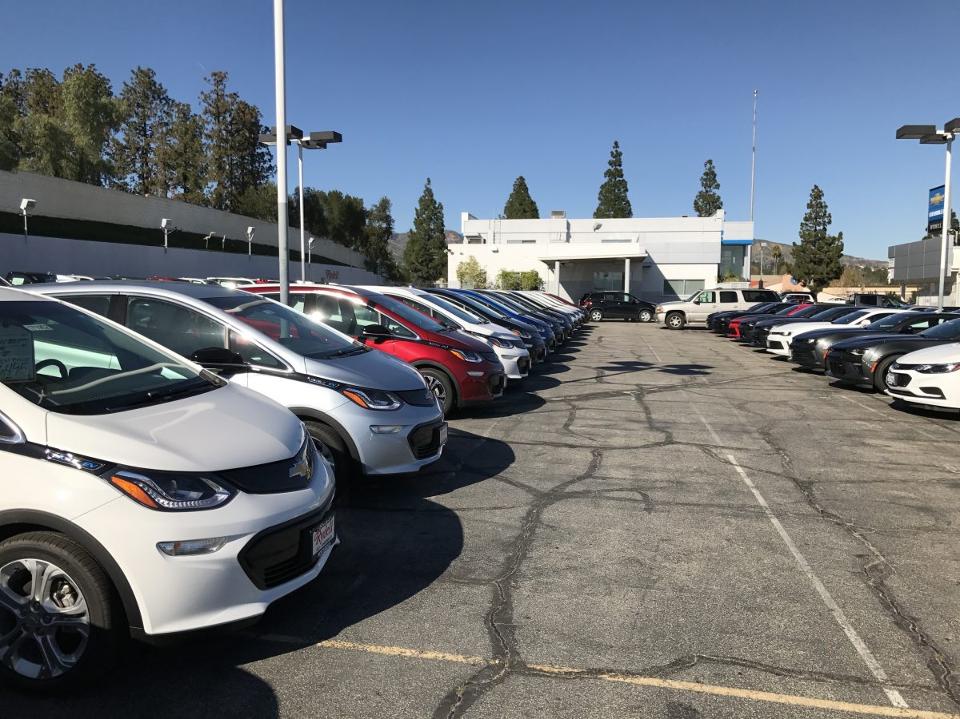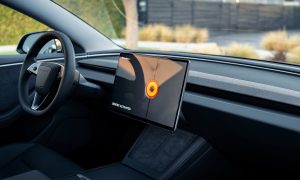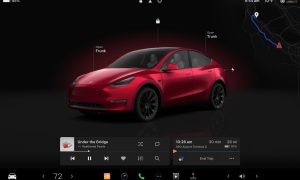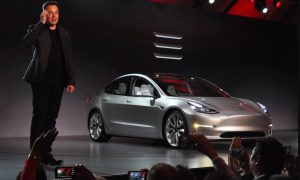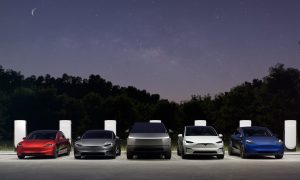In a blog post in 2012, Elon Musk laid out his reasons why Tesla prefers to sell direct to the public. “Existing franchise dealers have a fundamental conflict of interest between selling gasoline cars, which constitute the vast majority of their business, and selling the new technology of electric cars,” he wrote. “It is impossible for them to explain the advantages of going electric without simultaneously undermining their traditional business.”
Aside from Tesla, there haven’t been many long range pure electric cars from other manufacturers until recently when GM’s Chevy Bolt was announced. However, the Bolt is being rolled out slowly. The first cars began appearing in California showrooms late last year. The Bolt is currently available in 7 states and won’t be available in all 50 states until later this year.
According to pricing on TrueCar, the Bolt is already being discounted by dealerships. In January, the average discount was $1,400 which quickly rose to $2,200 in February. Discounts of up to $5,200 are available at one California dealer, but in those states where the Bolt has gone on sale and selection is limited, other dealers are charging up to $5,000 over sticker. Rather than actually educate customers about the advantages of the all electric Bolt, dealers are treating them as just one more car on lots filled with pickup trucks, SUVs, and conventional sedans.
100 miles south of San Francisco, Greenwood Chevrolet is advertising discounts of between $2,000 and $3,000 this month. Marty Greenwood, managing partner of the dealership, tells Automotive News, “We’re here to sell cars, and we’re in a smaller town, so we need to be a little bit more aggressive,” Greenwood said. “We just watch the market and what’s going on out there. What is the magic number to move the vehicle?”
In Long Beach, California, Sergio Navarrete, the sales manager at Harbor Chevrolet, says, “We price every single vehicle in inventory to move. Our business model is more geared toward volume vs. any one sale. Per unit we make less, but long term it works out better.”
There’s not a lot Chevrolet can do about such tactics. Thanks to dealer franchise laws, factories have far less control over dealers than they might like. Jim Cain, a spokesperson for GM, says, “If somebody’s marking them down, it’s coming out of their margin. Dealers are independent businesses, and capitalism at work tends to drive local market pricing.” He adds that GM discourages dealers from marking up scarce models but can’t stop them from doing so.
Tesla has a big advantage over other automakers because of its direct to consumers sales model, but also because it sells a single type of vehicle – electric. There’s no conflict of interest with selling vehicles of other types, as profits are not tied to them. The Tesla buying experience is quick, easy, and painless. The staff at Tesla stores are there to educate consumers and answer questions, not to sell cars.
Chevrolet thinks the Bolt is a competitor to the Model 3, but fails to appreciate that the sales experience is a significant factor for many buyers. That gives an important advantage to Tesla.

